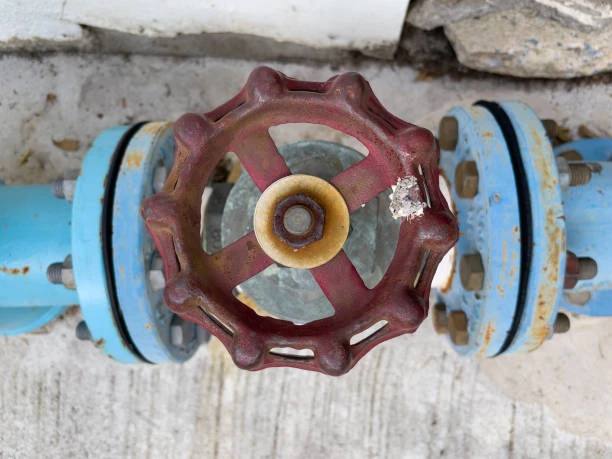Water is one of our most essential resources, yet it’s often wasted due to preventable issues like water valve leaks. As communities increasingly prioritize water conservation, these leaks pose significant challenges, especially in residential and public spaces. This article examines the causes, impacts, and solutions for water valve leaks, emphasizing why quick action benefits everyone.
What Is a Water Valve Leak?
A water valve leak occurs when water escapes through a faulty valve that regulates flow in a plumbing system. These leaks can manifest as slow drips or substantial leaks, depending on the severity of the damage.
Water valves are critical components in maintaining a steady water supply and controlling water pressure. When they fail, they lead to wasted water, higher bills, and potential structural damage. Additionally, water valve leaks in shared spaces like apartment complexes or public areas can create tensions among neighbors and undermine community-wide conservation efforts.
Causes of Water Valve Leaks
Understanding what causes water valve leaks is essential for prevention and early detection. Here are the most common culprits:
- Corrosion
Over time, water exposure can corrode metal components in valves, leading to weakened seals and eventual leaks. - Aging Infrastructure
Older water systems often lack the durability of modern materials, making them more susceptible to failure. - Improper Installation
Incorrectly installed valves may experience misalignment or weak connections, which can result in leaks over time. - Water Pressure Issues
High water pressure can strain valve components, leading to cracks, fractures, or seal failures. - Physical Damage
Accidental impacts, such as construction activities or equipment mishandling, can damage valves and cause leaks.

Impacts of a Water Valve Leak
A leaking water valve may seem minor at first, but its consequences can escalate quickly, affecting individuals and the broader community.
- Water Waste
Even a slow drip can waste hundreds of gallons of water over time, undermining conservation efforts. - Higher Utility Bills
Leaks increase water usage, leading to unexpected spikes in household or community water bills. - Property Damage
Prolonged leaks can cause water pooling, structural damage, and mold growth, particularly in hidden areas. - Environmental Harm
Wasted water puts unnecessary pressure on treatment facilities and natural water sources, impacting ecosystems. - Community Tensions
Shared water systems amplify the impact of leaks, leading to disputes among neighbors about responsibility and conservation.
How to Detect a Water Valve Leak
Early detection is critical to minimizing damage and water loss. Here are some practical methods to identify a leak:
- Check for Visible Signs
Look for wet spots, rust, or dripping near valves. - Monitor Water Bills
A sudden increase in water usage may indicate an undetected leak. - Inspect Water Pressure
Low water pressure could result from leaks in the plumbing system. - Listen for Unusual Sounds
Hissing or dripping sounds near a valve often signal leakage. - Conduct a Meter Test
Turn off all water usage, then monitor the water meter. If it continues to move, there’s likely a leak.
Solutions to Prevent and Fix Water Valve Leaks
Taking proactive steps can save water, reduce costs, and preserve infrastructure.
- Regular Inspections
Schedule routine inspections of your plumbing system, including valves, to detect wear and tear early. - Timely Repairs
Address leaks immediately to prevent further damage. Replace faulty components as necessary. - Install Durable Valves
Use high-quality materials like brass or stainless steel for better durability and leak resistance. - Adjust Water Pressure
Ensure your system operates within recommended pressure levels to reduce strain on valves. - Seek Professional Assistance
Hire licensed plumbers for installation, repairs, and maintenance to ensure long-term reliability.
Why Community Awareness Matters
Addressing water valve leaks isn’t just an individual responsibility—it’s a collective effort. Neighbors and communities must work together to prioritize water conservation. Initiatives such as neighborhood leak-detection campaigns, shared repair services, and public education can foster collaboration and accountability.
Conclusion
A water valve leak, though seemingly insignificant, can cause widespread consequences if ignored. Beyond financial costs, it challenges water conservation efforts and strains relationships within communities. Regular maintenance, early detection, and swift action are vital to addressing these leaks. By staying vigilant, homeowners, businesses, and municipalities can ensure sustainable water use and minimize environmental impact.
FAQs
1. How do I identify a leaking water valve in my home?
Check for visible water drips, rust, or wet areas around the valve. Listen for unusual sounds like dripping or hissing, and monitor your water bill for unexpected increases.
2. Can a water valve leak increase my water bill significantly?
Yes, even a minor leak can result in substantial water waste over time, leading to higher utility bills.
3. Should I repair a leaking valve myself or call a plumber?
For minor leaks, you may be able to tighten fittings or replace small components. However, for significant issues, hiring a professional plumber ensures proper repairs.
4. How often should water valves be inspected for leaks?
Inspect water valves at least twice a year and schedule professional inspections annually for comprehensive maintenance.
5. What materials are best for durable water valves?
Valves made from brass or stainless steel are more resistant to wear and corrosion, making them ideal for long-term use.